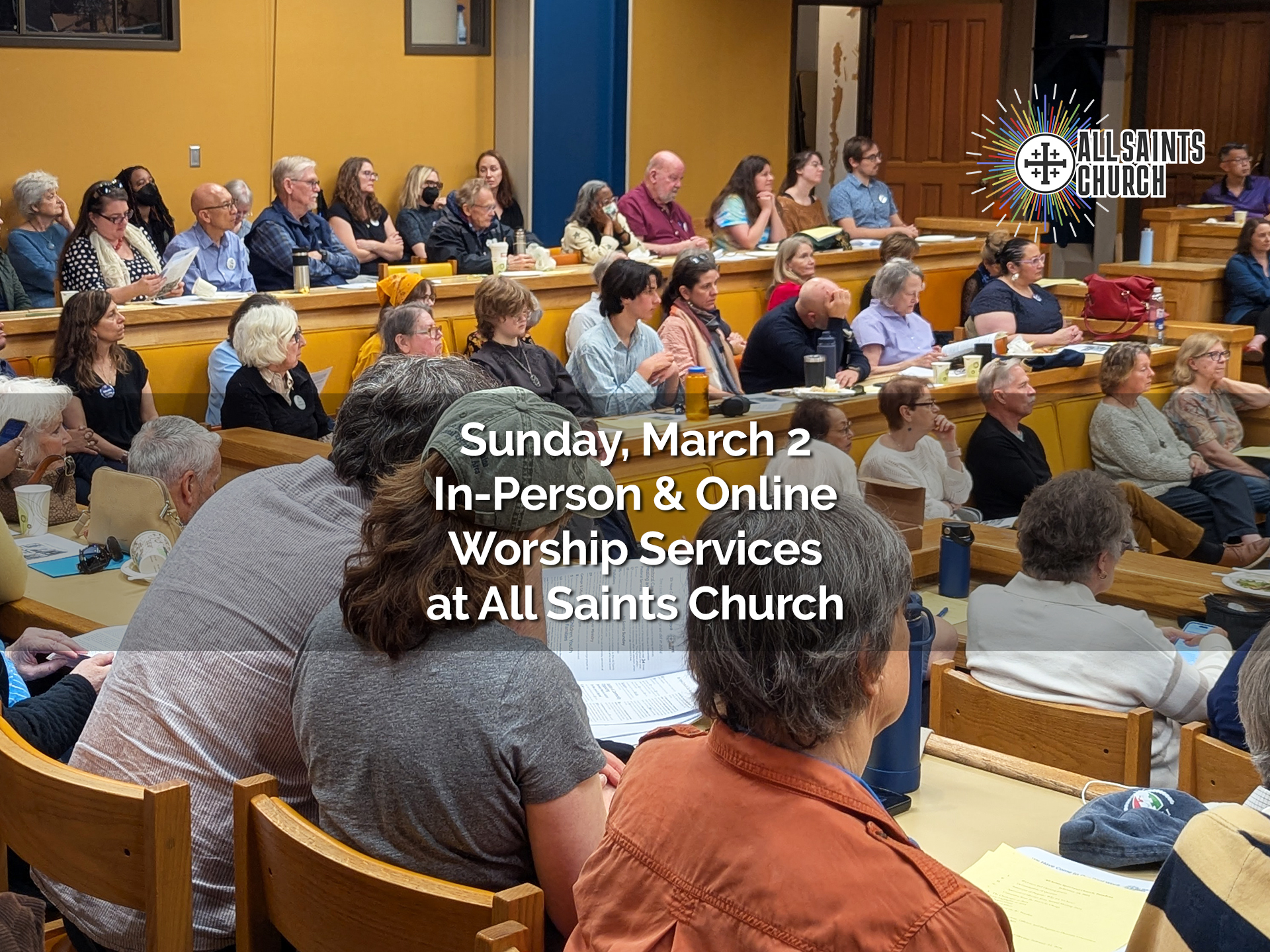The Gospel isn’t meant to be gulped down on Sunday morning, but gnawed on through the week so it really becomes a part of us. You’ve got to work at it, like a dog with a good bone! Here’s the Gospel for this coming Sunday — Second Sunday After Pentecost — with food for thought about meeting our demons head on. Gnaw away!
Second Sunday After Pentecost – Luke 8:26-39
Jesus and his disciples arrived at the country of the Gerasenes, which is opposite Galilee. As he stepped out on land, a man of the city who had demons met him. For a long time he had worn no clothes, and he did not live in a house but in the tombs. When he saw Jesus, he fell down before him and shouted at the top of his voice, “What have you to do with me, Jesus, Chosen of the Most High God? I beg you, do not torment me” — for Jesus had commanded the unclean spirit to come out of the man. (For many times it had seized him; he was kept under guard and bound with chains and shackles, but he would break the bonds and be driven by the demon into the wilds.) Jesus then asked him, “What is your name?” He said, “Legion”; for many demons had entered him. They begged him not to order them to go back into the abyss.
Now there on the hillside a large herd of swine was feeding; and the demons begged Jesus to let them enter these. So he gave them permission. Then the demons came out of the man and entered the swine, and the herd rushed down the steep bank into the lake and was drowned.
When the swineherds saw what had happened, they ran off and told it in the city and in the country. Then people came out to see what had happened, and when they came to Jesus, they found the man from whom the demons had gone sitting at the feet of Jesus, clothed and in his right mind. And they were afraid. Those who had seen it told them how the one who had been possessed by demons had been healed. Then all the people of the surrounding country of the Gerasenes asked Jesus to leave them; for they were seized with great fear. So he got into the boat and returned. The man from whom the demons had gone begged that he might be with him; but Jesus sent him away, saying, “Return to your home, and declare how much God has done for you.” So he went away, proclaiming throughout the city how much Jesus had done for him.
The Backstory – What’s Going On Here?
This story appears in all three synoptic Gospels (Matthew, Mark and Luke — called the synoptics because they share much of the same material). Luke places it in the middle of a series of passages that show Jesus’ power over wind and water (8:22-25) and sickness and death (8:40-56). Because the demon is specifically named “Legion” (the term for a unit of the Roman army comprising about 6,000 members), many think this is also a parable of Jesus’ power over the Roman Empire. However, stories of demon possession and exorcism were increasingly common in the first century, so this story could have several layers of meaning to it. Remember that a central message of Luke’s Gospel is how Christ’s love and power extends to everyone — particularly those on the margins and the Gentiles. Note where the demon was living — not just apart from the people but in the tombs, a place of ritual uncleanliness. And after Jesus casts the demons into a herd of pigs, his next appearance is going into the house of the leader of a synagogue (8:41). Jesus’ power reaches from one extreme to the other.
A few things to chew on:
*The demon shouts “What have you to do with me, Jesus?” There is a presumption that the Holy does not consort with the Unholy out of fear of contamination. But there is no fear of contamination here. Jesus enters into relationship with the demons, deals with them directly and even shows a sort of compassion to them, letting them enter the pigs instead of “casting them back into the abyss.” Whether we view demons as actual spiritual entities, addictions, illnesses or other things that are exercising power over us in unhealthy and evil ways — demons thrive on silence. When we don’t name them. When we don’t talk about them. When we pretend they don’t exist — that’s when we isolate ourselves and they have the most power over us. Jesus meets demons head on. As the Body of Christ, how can we do the same?
*When the man is healed, he wants to follow Jesus, but Jesus’ message to him is not to leave his life but to go back to his life and live it differently, live it proclaiming the healing power of God. As we meet our demons, as we ask the love that is Christ to cast them out, as we participate in that casting out, our next call is not to radically change every other part of our lives … but to live those lives differently, live those lives joyfully. To live holy, healthy lives giving praise to God for what has happened. Where has God healed you? How can you “proclaim throughout the city how much Jesus has done for you”?
Try This:
We don’t talk about demons much … probably either because it’s too scary or because they sound like superstition. We’d rather think of them as a literary device. Whether or not that is true, evil exists. There is evil that we let have power over us – lies of our own unworthiness, powers of addiction, temptations and compulsions to hate, all those things which “draw us from the love of God” and that lie to us about our own identity as God’s beloved. This week, take a few minutes at the beginning of each day and just try to do what Jesus did … name your demons. That’s all, just name them. And then name yourself as being God’s beloved. And realize that the truth of God’s love is truth. And the rest is lies.
Naming our demons
The Episcopal church doesn’t talk much about demons because because we take pride in being a reasonable, rational faith — and demons feel an awful lot like superstition.
But here they are in the Gospel. So let’s look at what demons do in this story.
The first thing we notice is that demons change people. When you’re possessed by a demon, you’re not yourself. It affects your whole life – but particularly your behavior. A demon prevents you from being wholly the person God is calling you to be.
The next thing we see is that demons separate you from your community. They isolate you. In this story, the man possessed by demons was described as “a man of the city” … except he wasn’t living in the city, he was living outside the city in the tombs, a place of uncleanness where only dead people went. People didn’t go near people with demons. They were afraid of them. Part of that is because people possessed by demons tended to be pretty scary, but also they were afraid they would get possessed too. So demon possession is isolating.
Finally, we see that demons are powerful. In scripture, demons are not exerting a little influence here and there .. they POSSESS people. They control them in ways that make them feel owned by them and powerless against them. These are not little things.
So demons change people. separate and isolate people, and are incredibly powerful, so powerful we feel like we are powerless against them.
Sounds familiar? What does that describe in your life?
So what do we do? Well look at what Jesus did. He didn’t run away. He didn’t say “Nananananana I don’t SEEEEEE you!!!”. He acknowledged its reality. He learned its name. He had a conversation with it.
So acknowledge your demons.
Maybe you or someone you love has an addiction or compulsion, something powerful that you feel prevents you from being who God dreams for you to be. Maybe it’s your relationship with alcohol or another drug. Maybe it’s your online viewing habits (the spam filter wouldn’t let me name this one). Maybe it’s your relationship with your phone and compulsive connectivity.
Or maybe you feel there is an actual outside force acting on you or someone you love and drawing you or them to a place of darkness.
Name them. And then remember that Jesus is more powerful than they are. As powerful as demons are, as fearful as they are, the power of God in Christ is more powerful – and even the demons know it. And that power is also given to us as followers of Christ.
And so, the power to cast out those demons is also right here in our community. It’s not here in me as a priest, it’s here in us as the body of Christ. And our work of casting out demons in the name of Christ happens as we continually do what Jesus did in this Gospel. When we love. And how we love is we acknowledge the demons among us (NOT people, but forces that act on us), name them, even become friends with them and know them well … and then together continually, in the power of love, order them away.
It’s about us naming the demons in our midst and refusing to let them isolate. It’s about saying when the person has the courage to come forward to say they have a problem with addiction or are so captured by fear that they lash out in hate that we still see them as God sees them, as beautiful and holy and as a friend … and that not only will we not isolate you, we will stand with you even closer because now more than ever you need this community to cast that demon out.
It’s about saying that there is no such thing as YOUR demon. That every demon in here is OUR demon. Because we carry them together and it is together that we will cast them out.
. . . . . . . . . . . . . . . . . . . . . .
Check out the rest of Sunday’s readings
The Lectionary Page has all of the readings for this Sunday and every
Sunday – click here for this Sunday’s readings.
Collect for Sunday
Pray this throughout the week as you gnaw on this Gospel.
O Lord, make us have perpetual love and reverence for your holy Name, for
you never fail to help and govern those whom you have set upon the sure
foundation of your lovingkindness; through Jesus Christ our Lord, who lives
and reigns with you and the Holy Spirit, one God, for ever and ever. Amen.
Want to read more?
“The Text This Week” is an excellent online resource for anyone who
wants to dive more deeply into the scriptures for the week.
. . . . . . . . . . . . . . . . . . . . .



